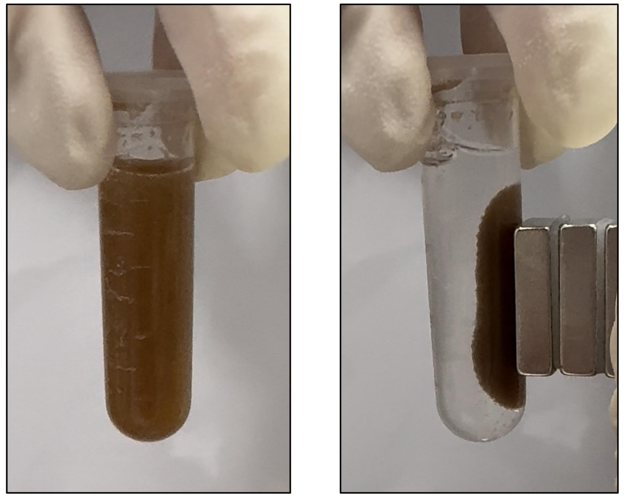
Photo by Sora Shimazaki via Pexels
By Stephen Beech
Bacteria "pills" that can detect gut diseases could spell the end of painful colonoscopies, scientists say.
Chinese researchers have developed a new sensor made of tiny microspheres packed with blood-sensing bacteria that detect markers of gastrointestinal disease.
Taken orally, the miniature “pills” also contain magnetic particles that make them easy to collect from stools.
Once excreted from mouse models with colitis, the bacterial sensor detected gastrointestinal bleeding within minutes.
The research team says the bacteria in the sensor could be adapted to detect other gut diseases.
Study co-author Dr. Ying Zhou said: "This technology provides a new paradigm for rapid and non-invasive detection of gastrointestinal diseases."
Millions of people worldwide have colorectal cancer or inflammatory bowel disease, including colitis, which can cause intestinal bleeding, diarrhea and cramping.

(ACS Sensors 2025 via SWNS)
The "gold-standard" diagnostic is a colonoscopy using an endoscope, a device with a camera at the end of a long cord that is threaded into the large intestine.
Despite its clinical value, many people avoid the procedure because of the preparation involved and its invasiveness.
Dr. Zhou and her colleagues at East China University of Science and Technology are developing gentler methods using bacteria that sense disease biomarkers, such as the red blood cell component heme - a sign of intestinal bleeding.
The research team previously developed heme-sensing bacteria that light up in the presence of blood, but the bacterial sensors break down in the digestive system and are hard to collect.
For the current study, published in the journal ACS Sensors, they encapsulated their heme-detecting bacteria and magnetic particles inside globs of sodium alginate, a thickening agent used in food.
Dr. Zhou said: "The process creates tiny hydrogel microsphere sensors that can easily be removed from feces with a magnet after they travel through the body.

Photo by Andrea Piacquadio via Pexels
"Initial tests showed that the hydrogel protected the bacteria from simulated digestive fluids but also allowed heme to interact with the bacterial sensor, causing it to glow."
The team then administered the microspheres orally to mouse models of colitis, representing disease levels from no activity to severe stages.
After the microspheres traveled through the animals’ gastrointestinal systems, the researchers retrieved the sensors from the feces using a magnet.
They found that microsphere clean-up and signal analysis took about 25 minutes.
As the disease stage progressed, the intensity of the light produced by the sensor increased, which the researchers say indicated more heme from mouse models with more advanced colitis.
Dr. Zhou added: "Assessments of healthy mice given the sensor indicated the microspheres were biocompatible and safe."
Although the sensor still needs to be tested in humans, the researchers say that the method of encapsulating bacterial sensors could diagnose gastrointestinal diseases and monitor treatments and disease progression.























(0) comments
Welcome to the discussion.
Log In
Keep it Clean. Please avoid obscene, vulgar, lewd, racist or sexually-oriented language.
PLEASE TURN OFF YOUR CAPS LOCK.
Don't Threaten. Threats of harming another person will not be tolerated.
Be Truthful. Don't knowingly lie about anyone or anything.
Be Nice. No racism, sexism or any sort of -ism that is degrading to another person.
Be Proactive. Use the 'Report' link on each comment to let us know of abusive posts.
Share with Us. We'd love to hear eyewitness accounts, the history behind an article.